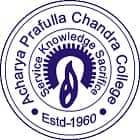Top Media & Journalism Colleges in West Bengal
West Bengal, a hub for rich culture in India, is renowned for having numerous institutions offering high quality education in the field of media and journalism. These top media and journalism colleges in West Bengal have gained recognition for their commitment to delivering quality education and real life training to aspiring media professionals. These best media and journalism colleges in West Bengal play a vital role in shaping the future journalists and media professionals in the region.
Also check - Best Journalism Colleges in India
Because being a journalist entails confronting public employees and political figures about what is right and wrong, journalism is also regarded as the voice of society. Journalists are the media's public face. Journalism is one of the ever-expanding degrees available at best colleges for media and journalism in West Bengal, with several job options as Reporters, Journalists, Publishers, Anchors, and so on. Read the post below to get more about top media and journalism schools, top colleges in media and journalism in West Bengal - its curriculum and fees.
Top 10 Media and Journalism Colleges in West Bengal
No | Name of the institution | City | Courses offered |
1 | Calcutta University | Kolkata | |
2 | Burdwan University | Bardhaman | |
3 | NBU - University of North Bengal | Darjeeling | |
4 | Amity University | Kadampukur | |
5 | St Xavier's University | Kolkata | |
6 | NSHM Kolkata - NSHM Knowledge Campus | Kolkata | |
7 | Aliah University | Kolkata | |
8 | Brainware University | Kolkata | |
9 | IMS Kolkata - Institute of Management Study | Kolkata | |
10 | ILEAD Kolkata - Institute of Leadership Entrepreneurship and Development | Kolkata |
Career after Graduating with Media and Journalism
In today's environment, a career in media and journalism provides graduates with fascinating prospects. With the fast rise of digital media platforms and the growing need for content and news, there are several career routes to pursue after graduating from media and journalism programmes.
Working as a journalist for newspapers, journals, or online media is a common career path. Journalists are essential in reporting news, investigating stories, and disseminating information to the public.
Another option is to pursue a career in broadcast journalism, where graduates might work as reporters, anchors, or producers at television or radio stations. This sector allows you to interact with a diverse audience and cover a variety of news beats.
Graduates work in digital media, such as content generation, social media administration, and multimedia production. The emergence of digital media has created new opportunities for storytelling and reaching audiences all over the world.
Other possible job choices include public relations and business communications. Graduates can work in public relations firms, corporate communication departments, or media relations, maintaining an organization's image and reputation.
Additionally, graduates can use their grasp of media dynamics and consumer behavior to build significant campaigns in advertising, marketing, and media planning.
Finally, a degree in media and journalism provides graduates with a wide range of abilities, including writing, research, critical thinking, and communication. Graduates may carve out lucrative careers in numerous sectors of the media business with the necessary skills and industry experience.
What to do after Studying Media and Journalism
Students choose from a variety of career options after graduating in media and journalism.
Journalist
Digital Content Creator
Broadcast Journalist
Public Relations Specialist
Multimedia Journalist
Content Strategist
Social Media Manager
Media Analyst
Media Educator
These are a few examples of the diverse career options available to Journalism and media graduates. The growing media landscape offers plenty of opportunities for students to create a significant impact and contribute to the field of storytelling and communication.
Frequently Asked Questions (FAQs)
What to do after media and journalism?
Ans: Many students pursue career paths as journalists, public relations specialists, social media managers etc.
Is experience necessary to start a career in media and journalism?
Ans: While having experience is a big plus, entry-level positions and internships provide opportunities to gain experience and necessary skills in this field.
What skills are important in media and journalism?
Ans: Strong communication skills, writing, critical thinking, research abilities, adaptability and understanding of media ethics are essential for success in this field.
What are the specializations in media and journalism?
Ans: There are multiple specializations in media and journalism such as investigative journalism, sports journalism, feature writing, broadcast news, multimedia production, public relations etc.
Can I freelance in media and journalism?
Ans: Yes, freelancing is common in the field of media and journalism. Freelancing offers opportunity and flexibility to work on different projects for different publications and clients.
APC College Kolkata - Acharya Prafulla Chandra College, Kolkata
Adamas University, Kolkata
Aghorekamini Prakashchandra Mahavidyalaya, Hooghly
Ownership:
Hooghly, West Bengal
Aghorekamini Prakashchandra Mahavidyalaya, Hooghly
Ownership:
Hooghly, West Bengal
- Fees : ₹39.04 K

Aliah University, Kolkata
Aligarh Muslim University Centre, Murshidabad
Ownership:
Murshidabad, West Bengal
Aligarh Muslim University Centre, Murshidabad
Ownership:
Murshidabad, West Bengal
- Fees : ₹3.60 Lakhs
AMEX Law College, Purba Bardhaman
Ownership:
Purba Bardhaman, West Bengal
AMEX Law College, Purba Bardhaman
Ownership:
Purba Bardhaman, West Bengal
- Fees : ₹5 Lakhs
- Ph.D (2 Courses)
Amity University, Kolkata

Ananda Chandra College, Jalpaiguri
Ownership:
Jalpaiguri, West Bengal
Ananda Chandra College, Jalpaiguri
Ownership:
Jalpaiguri, West Bengal
Annex College Center for Technical and Management Studies, Salt Lake City
Ownership:
Salt Lake City, West Bengal
Annex College Center for Technical and Management Studies, Salt Lake City
Ownership:
Salt Lake City, West Bengal
Asutosh College - Asutosh College, Kolkata
Balurghat College, Balurghat

Balurghat Mahila Mahavidyalaya Balurghat
Ownership:
Balurghat, West Bengal
Balurghat Mahila Mahavidyalaya Balurghat
Ownership:
Balurghat, West Bengal
Barrackpore Rastraguru Surendranath College, Barrackpore
Baruipur College, South 24-Parganas
Ownership:
South 24 Parganas, West Bengal
Baruipur College, South 24-Parganas
Ownership:
South 24 Parganas, West Bengal

Behala College, Kolkata
Bhairab Ganguly College, Kolkata
BESC Kolkata - Bhawanipur Education Society College, Kolkata

Bijoy Krishna Girls College, Howrah
Brainware University, Kolkata
- Fees : ₹3.89 Lakhs
CNMC Kolkata - Calcutta National Medical College, Kolkata
Chandrapur College, Chandrapur
Ownership:
Chandrapur, West Bengal
Chandrapur College, Chandrapur
Ownership:
Chandrapur, West Bengal

Darjeeling Hills University, Darjeeling
Ownership:
Darjeeling, West Bengal
Darjeeling Hills University, Darjeeling
Ownership:
Darjeeling, West Bengal
- Fees : ₹10.88 K
Derozio Memorial College, Kolkata
Dr B C Roy Post Graduate Institute of Paediatric Sciences, Kolkata
Ownership:
Kolkata, West Bengal
Dr B C Roy Post Graduate Institute of Paediatric Sciences, Kolkata
Ownership:
Kolkata, West Bengal
Dr Bhupendra Nath Dutta Smriti Mahavidyalaya, Burdwan

Dr Kanailal Bhattacharya College, Howrah
Dum Dum Motijheel College, Kolkata
Dum Dum Motijheel Rabindra Mahavidyalaya, Kolkata
EIILM Kolkata - Eastern Institute for Integrated Learning in Management, Kolkata

Future Business School, Kolkata
- Fees : ₹2.35 Lakhs
George College, Sealdah
- Fees : ₹2.58 Lakhs
Gobardanga Hindu College, North 24 Parganas
Gokhale Memorial Girls' College, Kolkata

Gour Mahavidyalaya, Malda
Gurudas College, Kolkata
Gyan Jyoti College, Dagapur
Harichand Guruchand University, North 24 Parganas
Ownership:
North 24 Parganas, West Bengal
Harichand Guruchand University, North 24 Parganas
Ownership:
North 24 Parganas, West Bengal
- Fees : ₹25.80 K

Hiralal Mazumdar Memorial College for Women, Kolkata
Ownership:
Kolkata, West Bengal
Hiralal Mazumdar Memorial College for Women, Kolkata
Ownership:
Kolkata, West Bengal
- Fees : ₹38.20 K
Inspiria Knowledge Campus, Siliguri
- Fees : ₹4.30 Lakhs
ILEAD Kolkata - Institute of Leadership Entrepreneurship and Development, Kolkata
IMCFTS Kolkata - Institute of Mass Communication Film and Television Studies, Kolkata

Jadavpur University, Kolkata
JD Institute of Fashion Technology, Siliguri
Jogesh Chandra Chaudhuri Law College, Kolkata
Jogesh Chandra Chowdhury College, Kolkata
Kandra Radhakanta Kundu Mahavidyalaya, Burdwan
Ownership:
Purba Bardhaman, West Bengal
Kandra Radhakanta Kundu Mahavidyalaya, Burdwan
Ownership:
Purba Bardhaman, West Bengal




